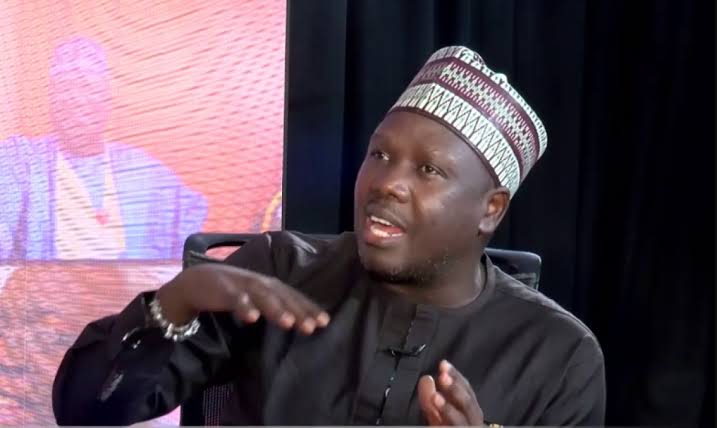The Nigerian cultural heritage marks an important milestone through its establishment of a modern museum facility showcasing West African art. The new Museum of West African Art has transformed Nigeria into a world-leading art market because it enables modernized interaction with historical artifacts.
As this museum has mostly been an artifact depository, it’s important for Africa to create interactive ways to unite historical culture with modern digital instruments. This digitalization can create massive artistic alliances that can redefine how we view and appreciate West African art.
In this article, we will explore how the state-of-the-art museum is showcasing West African art and its impact on cultural heritage.
Digital Culture: How Crypto and Other Platforms Reflect Nigeria’s Entertainment Landscape
What makes Nigeria interesting is the fact that it has become a culture that expands way beyond physical museums. They are increasingly becoming more and more accompanied by interactive digital experiences. For example, virtual museum tours, as well as streaming platforms and online exhibitions, show how digital accessibility is transforming the entertainment landscape.
Aside from cultural entertainment, Nigeria has shifted towards the digitalization of many other facets of entertainment, such as blockchain-based entertainment platforms, including gaming options that offer crypto-based offers such as crypto casino platforms. This shows Nigeria’s growing direction toward decentralized finance and digital assets. Data reveals that 25.86 million Nigerians are expected to be using cryptocurrencies in 2025, which establishes blockchain platforms as essential components of Nigeria’s digital economy.
However, this digitalization goes far above gambling. Just like virtual gaming platforms and streaming services that serve global audiences, crypto casinos shape an increasing trend of online-based entertainment. Nigerians actively accept digital innovations throughout cultural spheres since crypto casinos have gained attractiveness.
Private and Public Investments Driving Cultural Innovation
The state-of-the-art Nigerian museum will succeed through combined private and public funding, which supports advanced cultural preservation approaches. The museum obtains financial stability through government programs alongside philanthropic organizations, while corporate sponsorships help ensure its sustainability as an institution. African countries face an accelerated need for cultural institutions to obtain funds from diverse sources to maintain their existence.
Modern cultural spaces benefited greatly from private sector engagement between technology firms and creative enterprises that enabled contemporary innovation integration. The combined efforts between institutions and external stakeholders allow the implementation of modern BIM technology tools used for preserving and presenting cultural objects.
Nigeria achieves museum evolution through technological progress with cultural institutions and technology firm partnerships, which sustain a dynamic museum environment. Such an investment approach creates enhanced visitor engagement while making Nigerian heritage institutions leaders in worldwide museum advancement.
Repatriation Efforts and the Global Recognition of Nigerian Art
This museum represents a nationwide initiative to regain possession of artifacts that colonial rule took from Nigeria and West Africa. Repatriation has emerged as a return process for stolen cultural artifacts, which international institutions have started executing in recent years. This museum acts as a special venue that safeguards recovered objects so Nigerians can once again experience their historical heritage.
Multiple global institutions, led by the British Museum and other German institutions, have promised to hand back several Benin Bronzes while increasing Nigeria’s participation in the international art world. Through the museum’s artifact display activities, it exercises both historical preservation through preservation as well as creating renewed pride in national heritage for Nigerians while representing their cultural ownership of these artifacts.
Cultural Tourism and Economic Impact
Through its preservation function, the museum sets itself up to be the main contributor to cultural tourism growth in Nigeria. A lot of industries around the world show that museums successfully draw visitors who generate economic benefits and new job positions. The Nigerian museum will welcome local and foreign tourists to advance the nation’s creative economic growth during the following period.
Cultural tourism extends beyond museums through the establishment of events that showcase Nigeria’s various cultural heritage in the form of festivals, art markets, and interactive heritage experiences. The government supports cultural sector development because it advances economic goals while making cultural preservation investments produce sustainable economic outcomes.
Reports predict a 10.60% increase per year in tourism in Nigeria over the next five years which would contribute approximately $5,6390.00 million to the Nigerian economy by 2029. This demonstrates how essential the role of this museum is in developing Nigeria’s economic landscape for the future.
The Future of Nigerian Cultural Heritage on the Global Stage
The scope of cultural heritage goes past museums with cultural festivals and art markets that all showcase Nigeria’s cultural diversity. International recognition of culture will establish a link that unites past traditions with present times, which will sustain Nigeria’s cultural heritage influence on future generations.
When Nigeria’s cultural implementation succeeds, it can serve as an inspiration for other African nations to fund their cultural institutions, which will boost African artwork visibility at an international level.
Adedeji sent the piece from Ibadan




 5 days ago
8
5 days ago
8







 English (US) ·
English (US) ·